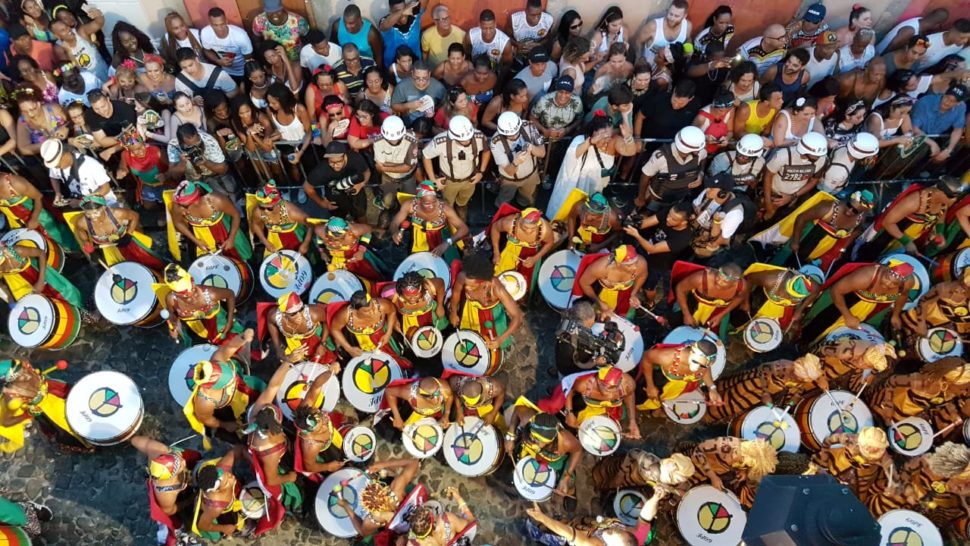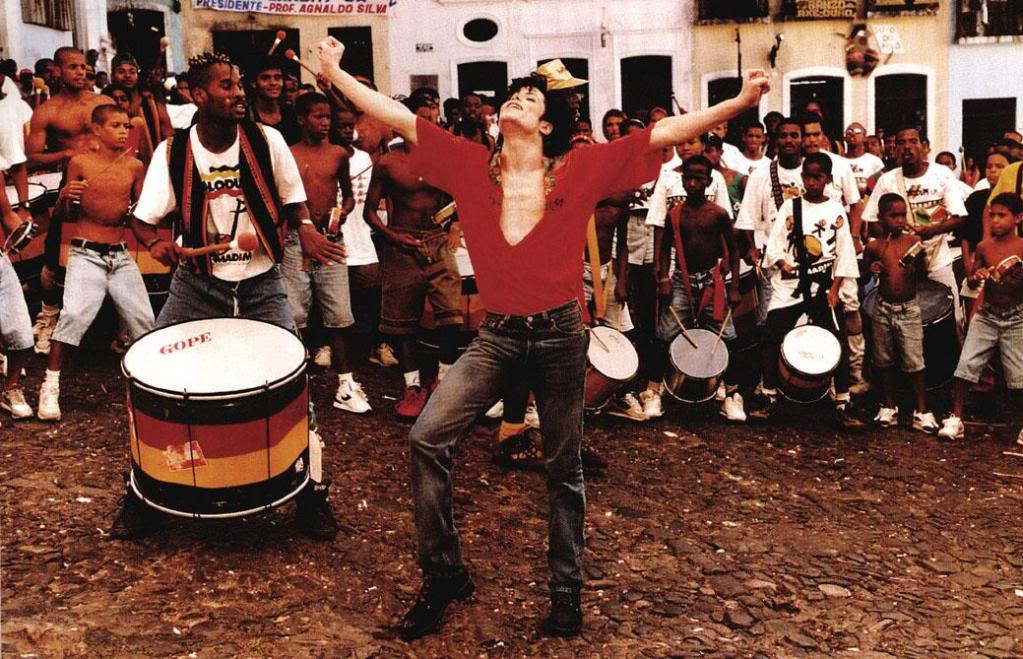Twenty-five years ago, Michael Jackson and Olodum, the iconic Afro-Brazilian musical band, teamed up to film the music video for ‘They don’t care about us.’
Spike Lee was hired to make the short film for the song.
The film was shot in Salvador, Brazil on Feb.9. This date is known as the day when Michael Jackson took over Salvador, because the whole city literally stopped to see the King of Pop performing in the streets of the historic Pelourinho— a neighborhood that is located in the center area of Salvador.
As Spike Lee explained during a presentation at TedX Brooklyn in 2013, Michael wanted him to make a “short film, not a music video” for a song from the upcoming album ‘HIStory.’
After the two agreed on the song, they traveled to Brazil, where Lee recommended using the Olodum drum team as part of the film production— the same musicians Paul Simon employed for his chart-topping album, ‘Rhythm of the Saints.’
“Usually artists do not want you to touch the track,” Lee said, “but Michael was open to the idea, and the result was one of the director’s best experiences with film.”
Lee recalled that something happened when they added the drums. People kept dancing long after the song was over.
“They’re still playing,” Lee recalled telling Michael, as the video production came to end.
Both Michael Jackson and Spike Lee were very impressed by the powerful music of Olodum.
Olodum is said to be one of the most iconic Afro-Brazilian musical groups over the past 40 years. Its name came from the Yoruba deity Olodumaré. They focus their yearly Carnival themes on controversial issues such as Black power and socialist movements in Africa and the African Diaspora.
The group is known to highlight Afro-Brazilian voices through history, art and culture. Listed by the UN as Intangible Cultural Heritage of the State of Bahia, the group became one of the most important expressions of world music. Olodum also helps the tourism sector in Salvador, by featuring the city’s afrocentric approach.

Olodum was initially created as a recreational option for the residents of Pelourinho (a Black neighborhood in Salvador), in order to enjoy the carnival as well as celebrate the origin, history and daily life of the Black population.
The band went even farther, establishing a social center where its members develop affirmative action policies in the city of Salvador. Its headquarters, A casa do Olodum, is a space that aims to combat social and racial discrimination, to stimulate self-esteem and pride of Afro-Brazilians, disseminate culture and ensure the civil and human rights of marginalized people in Bahia and in Brazil.
However, it is Olodum’s music that is the most powerful tool to promote the afrocentric soul of Bahia around the world.
In 1986, Olodum released its first album called “Egito Madagascar”, which was acclaimed for the success of the song “Faraó”. Since then, Olodum has released 25 albums and sold more than 5 million copies both in Brazil and overseas.
Banda Olodum brought different sounds and transformed African music that gave rise to new rhythms such as Ijexá, Samba, and Alujá, assembled by musician and percussionist Neguinho do Samba and gained worldwide notoriety in 40 countries.
Due to the pandemic, Olodum didn’t perform this year on the streets of Salvador. However, they are gearing up for a possible return at Rio’s 2022 Carnival.





